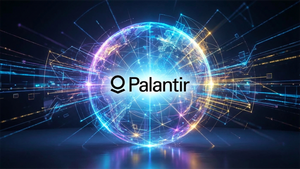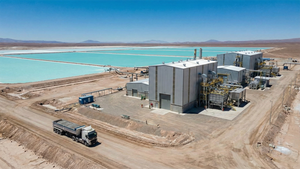Financial News
AI’s Bull Run Meets Valuation Reality: Tech Market Navigates Cautious Optimism Amidst Bubble Fears

The Artificial Intelligence (AI) sector has emerged as the undeniable engine of market growth, driving major indices to unprecedented highs as of November 5, 2025. This robust resurgence marks a significant rebound for the technology sector, which previously grappled with inflationary pressures, rising interest rates, and geopolitical uncertainties. However, this intoxicating wave of AI-driven prosperity is increasingly shadowed by growing concerns over market valuations, casting a pall of caution over the broader technology landscape. Investors find themselves in a delicate balancing act, torn between the transformative potential of AI and the specter of an overheated market.
The narrative of AI's recovery is largely penned by a handful of influential players, often referred to as the "Magnificent Seven," including Nvidia (NASDAQ: NVDA), Amazon (NASDAQ: AMZN), Apple (NASDAQ: AAPL), Microsoft (NASDAQ: MSFT), Tesla (NASDAQ: TSLA), Alphabet (NASDAQ: GOOGL), and Meta (NASDAQ: META). These tech giants, with their aggressive investments and pioneering advancements in AI, have been instrumental in propelling the market forward. Yet, as the S&P 500 pushes beyond 6,500 points, a palpable tension exists between the undeniable innovation and the ever-present question of sustainable growth versus speculative fervor.
The AI Engine: Unpacking the Technical Drivers and Market Momentum
The recent surge in AI stocks is not merely a speculative bubble but is rooted in profound technological advancements and an aggressive buildout of the necessary infrastructure. Breakthroughs in machine learning, natural language processing, and computer vision continue to unlock new applications and markets at an astonishing pace. A pivotal development has been the introduction of reasoning or inference capabilities into AI models, exemplified by OpenAI's ChatGPT-o1, launched in late 2024. This new generation of AI allows for more flexible thinking and complex problem-solving, moving beyond mere pattern recognition to a more nuanced understanding, significantly expanding the scope of AI's utility across various industries.
This technological leap is coupled with an intense "race to build the infrastructure AI needs." Companies are pouring massive capital into advanced semiconductors and cloud computing. Nvidia, for instance, a dominant force in AI chip manufacturing, saw its market capitalization nearing $4 trillion by June 2025, with its entire 2025 production of the advanced Blackwell architecture reportedly sold out by November 2024. Other key players like Broadcom (NASDAQ: AVGO) and Advanced Micro Devices (NASDAQ: AMD) have also reported strong revenue growth fueled by insatiable AI demand. Major deals, such as OpenAI's $38 billion agreement with Amazon (NASDAQ: AMZN) to leverage Amazon Web Services, underscore the critical role of cloud providers in offering the scalable infrastructure required to train and deploy sophisticated AI models. This aggressive investment in foundational AI capabilities differentiates the current boom from previous tech cycles, highlighting a deeper, more fundamental shift in technological paradigms.
Initial reactions from the AI research community and industry experts have been a mix of excitement and caution. While the rapid pace of innovation is celebrated, there are also discussions around the ethical implications, the need for robust regulatory frameworks, and the potential for job displacement. The widespread adoption of AI across sectors—from healthcare and finance to cybersecurity—is driving operational efficiencies and cost reductions, further validating the investment thesis for many AI-related companies. However, the sheer speed and scale of these developments also raise questions about the long-term societal impact and the ability of existing frameworks to adapt.
Corporate Impact: Beneficiaries, Disruptors, and Strategic Maneuvers
The AI stock recovery has created clear winners and competitive shifts within the tech landscape. The "Magnificent Seven" and other chipmakers like Nvidia, Broadcom, and Advanced Micro Devices (AMD) are undoubtedly the primary beneficiaries, leveraging their existing scale, R&D capabilities, and market dominance to capitalize on the AI boom. Their strong corporate earnings, with approximately 83% of S&P 500 companies exceeding expectations in Q3 2025, provide fundamental support for their market gains, reinforcing investor confidence in their strategic AI pivots.
This development has profound competitive implications for major AI labs and tech companies. Smaller AI startups, while innovative, face intense competition from well-capitalized tech giants who can outspend and out-resource them in the race for talent and infrastructure. The ability to secure significant cloud computing resources and advanced AI chips has become a critical strategic advantage, potentially leading to further market consolidation. Companies that fail to integrate AI effectively into their product offerings risk being disrupted, as AI-powered solutions offer enhanced capabilities and efficiencies that can quickly render older technologies obsolete.
Market positioning and strategic advantages are now inextricably linked to AI prowess. Companies that can demonstrate clear pathways to profitability through AI, rather than just impressive growth metrics, are gaining favor with investors. The intense focus on AI is also driving strategic partnerships and acquisitions, as companies seek to bolster their AI capabilities and expand their market reach. This era is characterized by a "land grab" for AI talent and technology, shaping the competitive landscape for decades to come.
Wider Significance: AI's Place in the Broader Tech Tapestry and Emerging Concerns
The current AI surge fits squarely into the broader trend of technological acceleration, but with distinct characteristics that set it apart from previous cycles. Unlike the dot-com bubble, where many companies lacked clear business models, today's AI advancements are demonstrating tangible applications and significant economic impact across various industries. However, the rapid ascent of AI stocks has also ignited serious concerns about market overvaluation, echoing sentiments from past speculative booms.
The "Buffett Indicator" (total stock market capitalization to GDP) stood at approximately 180% in January 2025, surpassing peaks seen during the dot-com bubble. Similarly, the cyclically adjusted price-to-earnings (CAPE) ratio has soared above 37, placing it among the highest valuations in history. The tech-heavy Nasdaq 100 is trading near 27 times forward earnings, significantly above its long-term average. These elevated metrics, coupled with the concentrated nature of market gains—where Nvidia (NASDAQ: NVDA) alone constitutes about 8% of the S&P 500—raise red flags about systemic risk and the potential for a sharp correction.
Potential concerns extend beyond market valuations. The sheer processing power required for advanced AI models raises environmental sustainability questions. Ethical considerations around AI bias, data privacy, and the potential for misuse are also becoming more prominent. Comparisons to previous AI milestones, such as the initial excitement around expert systems or early machine learning, highlight the cyclical nature of technological hype, but the current wave feels different due to the unprecedented scale of investment and the demonstrable capabilities of modern AI. Bank executives from institutions like Goldman Sachs (NYSE: GS) and Morgan Stanley (NYSE: MS) have warned of a potential market pullback, with a BofA Global Research survey in October 2025 revealing that 54% of investors believe AI stocks are currently in a bubble.
Future Horizons: Unveiling Expected Developments and Looming Challenges
Looking ahead, the near-term and long-term developments in AI promise continued innovation and expansion. We can expect further breakthroughs in multimodal AI, enabling systems to process and understand information from various sources like text, images, and audio more cohesively. The integration of AI into everyday devices and software will become even more seamless, leading to increasingly personalized and intelligent user experiences. The focus will likely shift towards more efficient and less resource-intensive AI models, addressing some of the environmental concerns associated with the current compute-heavy approaches.
Potential applications and use cases on the horizon are vast, ranging from highly sophisticated personalized medicine and drug discovery to fully autonomous systems in logistics and manufacturing. AI is poised to revolutionize education, scientific research, and creative industries, offering tools that augment human capabilities in unprecedented ways. The development of AI agents capable of complex reasoning and independent task execution, building upon models like ChatGPT-o1, will open up entirely new paradigms for automation and problem-solving.
However, significant challenges need to be addressed. Regulatory frameworks will struggle to keep pace with the rapid advancements, necessitating a global effort to establish ethical guidelines and governance structures. The "risk-off mood" observed in early November 2025, partly driven by a perceived fading enthusiasm for AI, suggests that investor sentiment can be fickle, and companies will need to consistently demonstrate tangible returns on their AI investments. Furthermore, geopolitical risks, such as new US tariffs and China's ban on foreign AI chips from state-funded data centers, highlight the fragility of global supply chains and the potential for nationalistic policies to impact technological progress. Experts predict a continued period of intense competition and innovation, but also a more discerning investment environment where profitability and sustainable growth will be prioritized over speculative potential.
Comprehensive Wrap-Up: Assessing AI's Trajectory and What Lies Ahead
In summary, the recovery of AI stocks has been a defining feature of the financial markets in 2025, driven by groundbreaking technological advancements, aggressive infrastructure buildouts, and strong corporate earnings from major players like Nvidia (NASDAQ: NVDA), Microsoft (NASDAQ: MSFT), and Alphabet (NASDAQ: GOOGL). The widespread adoption of AI across diverse industries underscores its transformative potential and its role as a fundamental driver of economic growth. However, this bullish sentiment is increasingly tempered by significant valuation concerns across the broader tech market, with indicators like the Buffett Indicator and CAPE ratio signaling potential overheating.
The significance of this development in AI history is profound. It represents a maturation of AI from a niche research area to a core pillar of global industry and commerce. Unlike previous AI hypes, the current wave is backed by demonstrable capabilities and substantial investment, suggesting a more enduring impact. Yet, the warnings from financial institutions and market analysts about a potential bubble cannot be ignored, reminding us that even the most revolutionary technologies are subject to market cycles and investor sentiment.
In the coming weeks and months, investors and industry observers will be closely watching several key indicators. The sustainability of corporate earnings from AI-centric companies, the trajectory of interest rates and inflation, and any new regulatory developments will all play crucial roles in shaping the market's direction. Furthermore, the ability of AI companies to translate their technological prowess into consistent profitability will be paramount. The tug-of-war between AI's boundless potential and the realities of market valuations will continue to define the tech landscape, making it a fascinating and potentially volatile period for investors and innovators alike.
This content is intended for informational purposes only and represents analysis of current AI developments.
TokenRing AI delivers enterprise-grade solutions for multi-agent AI workflow orchestration, AI-powered development tools, and seamless remote collaboration platforms.
For more information, visit https://www.tokenring.ai/.
More News
View More




Recent Quotes
View MoreQuotes delayed at least 20 minutes.
By accessing this page, you agree to the Privacy Policy and Terms Of Service.



